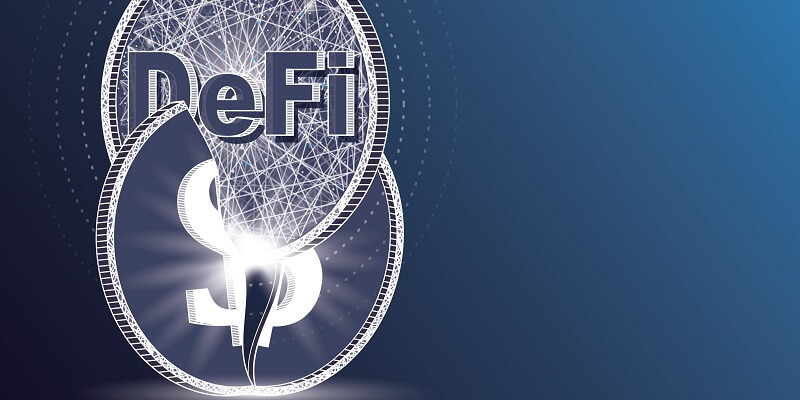As the decentralized finance (DeFi) ecosystem continues to evolve, it is crucial to analyze the key trends that will shape its future. Looking ahead to 2023-2025, several significant shifts are expected to revolutionize the DeFi landscape, bringing forth new opportunities and challenges. In this article, we will explore these trends and discuss their implications for the future of DeFi.
Crypto Bridges and Interoperability
Crypto bridges are platforms or protocols that enable seamless asset transfers and communication between different blockchains. This trend will play a vital role in enhancing the interoperability of various decentralized applications (DApps) and blockchain networks. Interoperability is crucial for the growth of DeFi as it allows users to access liquidity and assets from multiple blockchain ecosystems, expanding the reach and usability of decentralized finance.
Integration of Traditional Finance and DeFi
The integration of traditional finance and DeFi is a trend that will continue to gain momentum in the coming years. As the boundaries between traditional financial systems and decentralized finance blur, we can expect to see deeper collaborations and partnerships between these two worlds. Traditional financial institutions will increasingly leverage the benefits of DeFi, such as transparency, efficiency, and accessibility. Simultaneously, DeFi protocols will explore ways to bridge the gap to cater to mainstream financial needs and compliance requirements.
Collaboration between DeFi lending platforms and financial institutions
The rise of DeFi lending platforms has opened up new avenues for individuals to access credit and generate passive income. In the years ahead, we can anticipate more collaborations between these platforms and banks and other financial institutions. This partnership will enable DeFi lending to reach a broader audience while benefiting from the experience, reputation, and regulatory compliance offered by traditional financial institutions.
DeFi’s Role in Monetizing Blockchain Gaming
The gaming industry has witnessed a surge in interest from blockchain technology enthusiasts, thanks to the potential for ownership and value creation through non-fungible tokens (NFTs). DeFi will play a significant role in monetizing blockchain gaming, as developers and users alike recognize the opportunities for creating decentralized gaming ecosystems. “Play-to-earn” models, where gamers can earn cryptocurrency or NFTs through gameplay, will become more prevalent, incentivizing users to participate and invest in blockchain gaming.
Rise of “Play-to-Earn” Models in Gaming
Driven by the integration of DeFi and blockchain gaming, “play-to-earn” models are poised to disrupt traditional gaming paradigms. In these models, players are rewarded with digital assets that hold real value, enabling them to earn a livelihood through gaming. This trend has the potential to empower individuals, particularly in regions with limited economic opportunities, by providing an avenue for income generation and financial inclusion.
Revolution of DEXs and AMMs
Decentralized exchanges (DEXs) and automated market makers (AMMs) have already revolutionized trading by enabling peer-to-peer transactions and removing intermediaries. However, in the years ahead, we can expect further advancements in the design and functionality of DEXs and AMMs. These advancements will improve scalability, security, and user experience, making decentralized trading more accessible and efficient than ever before.
Improvements in the design and functionality of DEXs and AMMs
To attract mainstream users, developers will focus on enhancing the user interfaces of DEXs (decentralized exchanges) and AMMs (automated market makers), making them more intuitive and user-friendly. Additionally, efforts will be made to reduce slippage, ensuring that users can trade assets at fair prices. Liquidity management will also be a key focus, as innovative solutions are implemented to maintain adequate liquidity and minimize market volatility.
Enhanced user interfaces and reduced slippage
User interfaces will play a decisive role in the adoption of decentralized trading platforms. Intuitive interfaces, combined with enhanced functionalities such as price charts, order books, and portfolio tracking, will make the user experience more aligned with centralized exchanges. Additionally, advancements in smart contract technology and liquidity protocols will help reduce slippage, ensuring that users can execute trades accurately and efficiently.
Growing appeal and competition in decentralized trading
With improved user interfaces, reduced slippage, and enhanced liquidity management, decentralized trading platforms will become more appealing and competitive. This will drive increased adoption and liquidity in the DeFi space, leading to a more vibrant and inclusive trading ecosystem. As more users experience the benefits of decentralized trading, traditional centralized exchanges may face significant challenges, necessitating their own adaptations to remain relevant.
Definition and Significance of Governance Tokens
Governance tokens, such as those found in decentralized autonomous organizations (DAOs), are tokens that grant holders voting rights and control over the project’s decision-making processes. In the future, governance tokens will become more prevalent, giving users greater control over upgrades, proposals, and project funding. This democratization of power aligns with the core principles of decentralization, empowering the DeFi community to actively participate in shaping the future of projects and protocols.
Greater user control over upgrades, proposals, and project funding
The increased prevalence of governance tokens will lead to greater user participation in decision-making processes within DeFi projects. Users will have the ability to vote on upgrades, propose new features, and allocate project funding. This shift in authority from centralized entities to user communities ensures a more transparent and inclusive governance model, fostering trust and accountability within the DeFi ecosystem.
In conclusion, the future of DeFi holds immense potential for transforming the financial ecosystem as we know it. The discussed trends, including crypto bridges, integration with traditional finance, collaboration between lending platforms and financial institutions, the monetization of blockchain gaming, advancements in DEXs and AMMs, and the rise of governance tokens, will shape this transformative journey. As we embrace these trends, we must ensure that principles of security, compliance, and user empowerment remain at the forefront of DeFi’s growth. By doing so, we can create a more inclusive, accessible, and sustainable decentralized financial system for the years to come.

